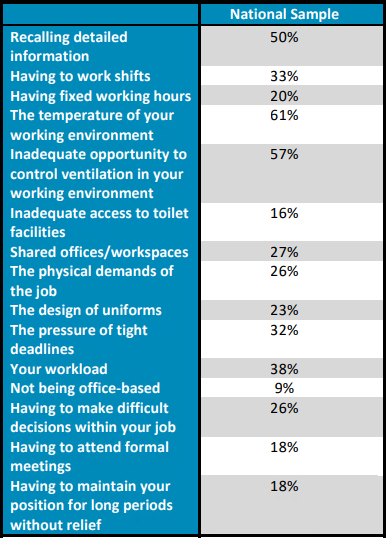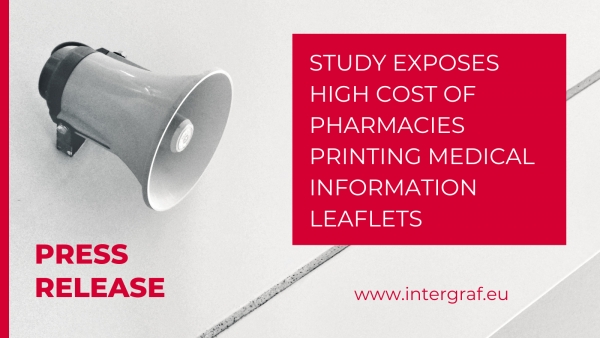23 August 2019

Let’s talk about the ‘M’ word
With UK female employment rates (number of women of working age that are currently employed) reaching record highs of 72%(1), you need to be prepared to discuss the ‘M' word.
The menopause will be experienced by all women at some point in their lives, however despite it being a natural and expected process, it is a subject that many don't feel comfortable talking about, particularly in the workplace.
How does it affect your business?
There is no single ‘menopause', which makes it even harder to manage in the workplace. All women have entirely different experiences, however 59%(2) of women experiencing the menopause say it has a negative impact on them at work. Some women won't require any extra support however some will, so it's important to make sure that support is available.
Not only does the menopause impact the individual, but its associated symptoms could impact their partners and your business too. Whether from the health and safety perspective of fatigued employees operating machinery, capability concerns following memory loss, or increased attrition and the associated costs as a result of 20% (3) of women surveyed nationally having considered leaving work as a result of the menopause.

Table 1: Aspects of the working environment (where applicable) that made coping with menopause symptoms moderately or extremely difficult. Source: Greater Manchester Police; ‘Menopause Survey', April 2019
Signs & Symptoms:
- Mood disturbances, anxiety/depression
- Memory loss
- Reduced concentration
- Panic attacks and loss of confidence
- Hot flushes & palpitations
- Fatigue, irritability and headaches
- Recurrent UTIs
- Muscle/joint aches and pains
- Weight gain
* This list is not exhaustive
Why is this an issue?
Menopausal women are the fastest growing demographic in the workforce and according to the Faculty of Occupational Medicine (FOM), nearly 8 out of 10 of menopausal women are in work.
The menopause is covered under the 2010 Equality Act. This means; like a disability, you must consider and offer any reasonable adjustments to women suffering from menopausal symptoms. There are an increasing number of legal cases in this area including age, gender and disability discrimination.
Merchant vs BT (2012)
Successful Claim - Example of Poor employment practice
Davies vs Scottish Courts and Tribunal Service SCTS (2018)
Successful Claim
Tiffin vs Surrey Police (2017)
Unsuccessful Claim - Example of Good employment practice
What should you do?
- Raise awareness - remove the ‘taboo’
- Implement the BPIF Menopause Policy
- Train managers to be approachable and comfortable in offering support – particularly in our industry with predominantly male managers
- Offer appropriate reasonable adjustments:
- Adjust absence triggers, improve ventilation, provide desk fans, review female facilities, accommodate flexible working e.g. following poor sleep due to insomnia/hot flushes
- Provide access to Occupational Health
- Approach formal processes with a ‘disability’ mind-set to ensure you are fair & reasonable
Information & Support
For further guidance, or to discuss a specific case, please contact your regional HR Adviser: https://bit.ly/32T6o1A.
For information on our Absence Management Training Course please visit https://bit.ly/2Ze61vD.
For a BPIF Occupational Health referral, please contact: [email protected]
For additional information, the CIPD have produced great guides: https://bit.ly/32T3idY and https://bit.ly/30qGUY5
[1] Office for National Statistics; ‘Labour market overview, UK: July 2019’
[2] CIPD; Menopause Press Release, March 2019
[3] Greater Manchester Police; ‘Menopause Survey’, April 2019
 Intergraf Economic News (Paper Prices) - March 2024
Intergraf Economic News (Paper Prices) - March 2024
18 March 2024
Access the latest edition of the Economic Newsletter for the European Printing Industry for data on paper consumption, and pricing data for pulp, paper and recovered paper. Data for packaging papers and board is also available with this edition.
 STUDY EXPOSES HIGH COST OF PHARMACIES PRINTING MEDICAL INFORMATION LEAFLETS
STUDY EXPOSES HIGH COST OF PHARMACIES PRINTING MEDICAL INFORMATION LEAFLETS
7 March 2024
Intergraf welcomes the release of a study by our partner MLPS (Medical Leaflet = Patient Safety), a subgroup of the European Carton Manufacturers Association (ECMA) shedding light on the potential economic costs associated with the proposed use of Print on Demand (PoD) leaflets in the pharmaceutical legislation revision.

The BPIF is the printing industries champion. By becoming a member you join a diverse and influential community. We help you solve business problems, connect you to new customers and suppliers and make your voice heard in government.
Call 01676 526030









